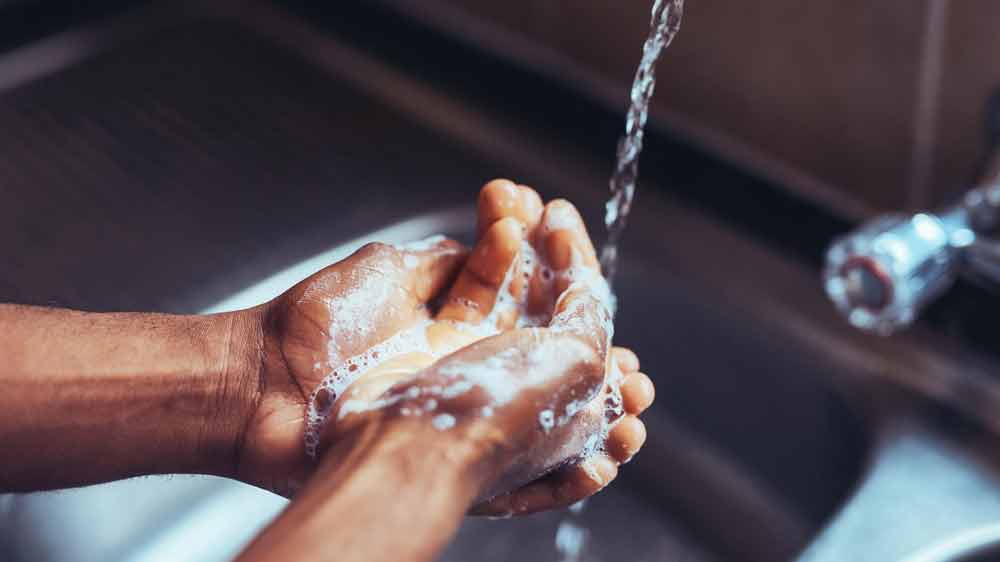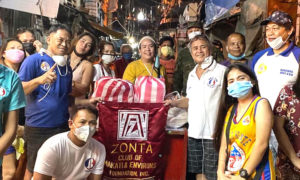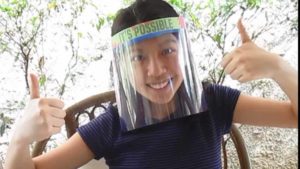LATEST NEWS
The Gender Effects Of Covid-19
The plea to put women and girls at the center of efforts during this pandemic
April 16, 2020

When pandemics strike, world leaders and health responders must adapt quickly to the looming threat. Often the last factor they would consider is gender. “Gender is not a priority right now. Maybe when things calm down,” is the excuse we hear time and time again. If we are to pursue the most effective responses to the current COVID-19 pandemic, or any health emergencies for that matter, this reasoning must change. The truth is, pandemics affect women and men differently, and they make existing inequalities worse for women and girls. They have the potential to magnify these inequalities exponentially. During a disease outbreak, women are disproportionately at risk of domestic violence, and have difficulty in accessing health care while experiencing financial insecurity, and more.
“Stay Home, Stay Safe”…Is home really a safe space for everyone? Being locked at home to help prevent the virus from spreading is the right thing to do; however, thousands of new cases are being reported daily of a horrifying increase in violence against women. The levels rise when households are placed under the increased strains coming from threats to security and health compounded by financial worries, and living in cramped and confined conditions. Government-mandated quarantine increases the risk of gender-based violence as more women become trapped at home with their abusive partners and family members or parents/guardians of young girls.
The burden of care usually falls on women, who not only look after their children in the face of school closures, but also look out for extended family members. Even prior to cities going on lockdown, women have been spending time– two to ten times more, on unpaid caregiving and domestic work than men. Now these women are only allowed to go out at certain hours and days of the week, preventing them, including the elderly, from caring for children who are out of school as part of containment efforts while managing food, health, and sanitation within their household.
It is also a fact that women who make up 70% of the health and social service workforce, are on the frontlines of the response effort to treat and stop the spread of the virus. Yet wage and authority gaps leave women underpaid and in positions of powerlessness. Some of these women have unrecorded contracts, and are daily-wage earners working in cleaning, caring, and cashiering sectors who are forced to put their health at risk when they leave their homes to earn a living.
Recognizing all these situations affecting women and girls in these difficult times, United Nations Secretary General Antonio Guterres issued a statement encouraging governments to put women’s safety first as they respond to COVID-19. In this regard, the UN also released a policy brief entitled: “The Impact of COVID-19 on Women” (April 9, 2020). It shows recommendations in putting women’s leadership and contributions at the heart of resiliency and recovery.
To know more, see https://reliefweb.int/report/world/policy-brief-impact-covid-19-women-9-april-2020
As COVID-19 spreads around the world, this pandemic is truly hitting women and girls the hardest. No doubt the impact will be felt for years to come. The Zonta Club of Makati and Environs recognizes that women will be affected by the ramifications of the disease. We believe that the most effective policy responses are those that demonstrate how the crisis is experienced by women and girls. Thus we want to make sure that women’s and girl’s rights and needs are at the front and center of our response. All these need funding; organizations like ours, while responding to COVID-19, need budgeted resources in assisting women to bolster their response to the crisis and to prepare for the economic recovery. It is these resources that many organizations lack. ZCME appeals to funders to enhance their support for women instead of overlooking them. COVID-19 is not only challenging global health systems, but also testing our common humanity. Prioritizing gender equality and women’s rights will help us get through this pandemic together, to allow us all to recover faster while building a better future for everyone.
SHARE THIS POST:
RELATED POST

THE FEMALE FARMER: ZCME 1st GMM 2020 featuring Cherrie Atilano
Agrea CEO and founding farmer Cherrie Atilano tells us why farming can make a country zero hunger, zero waste, and zero insufficiencies

Stand Together Against COVID-19 (UPDATE MAY 2020)
Zonta Club of Makati and Environs’ nominee, Carmen Valdes, Phd, recently won the Zonta International Centennial Anniversary Award. This award recognizes and honours an outstanding individual or business/organization/ agency in the city/community with a proven record of empowering women.

PAPERIEHEROES: How to Make a Faceshield
Dani will be teaching you how to make faceshield for frontliners. Easy DIY tutorial with simple materials. #thepaperieheroes

